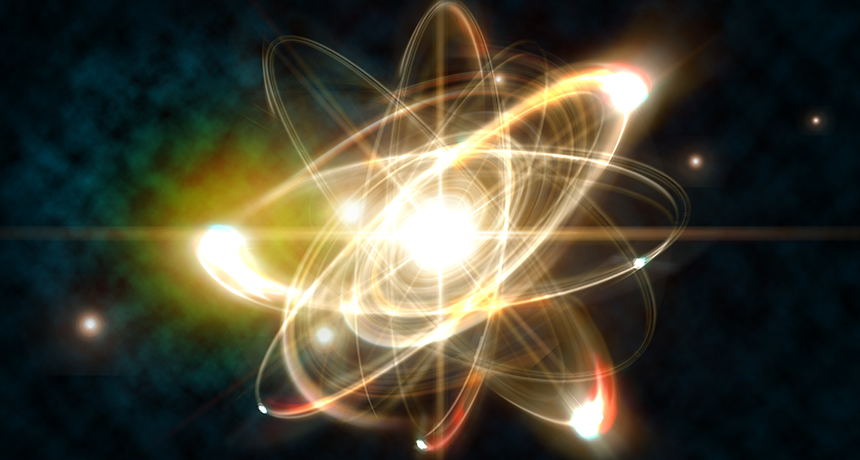There is a question that keeps philosophers, scientists, and visionaries awake at night: What happens when we create a form of intelligence that surpasses our own? This is the essence of superintelligence—the idea of machines or artificial minds that are not only smarter than humans in certain narrow tasks but vastly superior across the entire spectrum of cognitive abilities.
Superintelligence is not just another step in technological progress; it is a potential turning point in the history of life itself. If realized, it could mark the moment when intelligence—the very quality that allowed humans to rise above other species—ceases to be uniquely ours. It could become the most consequential invention ever made, with the power to reshape civilization in ways that are both exhilarating and terrifying.
Defining Superintelligence
At its core, superintelligence refers to an intellect that vastly outperforms the best human brains in virtually every field: scientific creativity, general wisdom, social skills, and technological problem-solving. While artificial intelligence today excels in narrow tasks—such as playing chess, translating languages, or generating text—it is still limited compared to the flexible, general intelligence humans display. Superintelligence would transcend these boundaries.
It would not be limited by human biological constraints such as slow neuron firing rates, limited memory capacity, or emotional biases. Instead, it could process vast amounts of data at speeds unimaginable to us, recall information with perfect accuracy, and learn continuously without fatigue. In this sense, superintelligence is not just “better than human”—it is qualitatively different, a new category of mind.
From Human Intelligence to Beyond
To understand the leap to superintelligence, it helps to consider the history of intelligence on Earth. Life evolved over billions of years, producing nervous systems of increasing complexity. Eventually, Homo sapiens emerged with brains capable of language, abstract reasoning, and tool-making. This cognitive leap made humans the dominant species, able to manipulate environments, invent technologies, and reshape ecosystems.
Now we stand on the brink of another leap—one not driven by evolution, but by engineering. The development of artificial intelligence has progressed at a staggering pace, with algorithms capable of tasks once thought uniquely human: composing music, diagnosing diseases, designing molecules, and generating human-like conversation. Each step brings us closer to artificial general intelligence (AGI)—a system with the ability to understand, learn, and act across a wide range of tasks as flexibly as humans. Once AGI is achieved, many researchers believe superintelligence will soon follow, because machines could improve themselves at accelerating speeds, leaving human cognition far behind.
The Pathways to Superintelligence
How could superintelligence arise? Several pathways have been proposed, each with different implications for the future. One route is through machine learning and artificial general intelligence, where systems that already outperform humans in narrow tasks eventually gain the flexibility and reasoning capacity of a human mind. From there, they could rapidly self-improve, writing better versions of their own software in a recursive cycle known as the “intelligence explosion.”
Another possibility is whole brain emulation—scanning the human brain at a fine-grained level and replicating its functions in a digital medium. Such a simulated mind could then be run faster than a biological brain, copied multiple times, or enhanced with new capabilities.
There is also the prospect of hybrid intelligence, where human cognition is directly integrated with advanced machines through brain-computer interfaces. In this scenario, the boundary between human and machine blurs, creating augmented forms of intelligence that could eventually surpass anything purely biological.
Whichever path emerges, the common thread is that intelligence is no longer bound by the slow pace of natural evolution. It becomes subject to technological acceleration, which could transform the timeline of civilization dramatically.
The Promise of Superintelligence
The potential benefits of superintelligence are staggering. Imagine a mind capable of solving the greatest scientific mysteries: unifying physics, curing all diseases, reversing aging, and unlocking sustainable energy sources. Superintelligent systems could design technologies beyond our comprehension, manage global resources with unprecedented efficiency, and guide humanity toward a future of abundance.
In medicine, superintelligence might develop personalized treatments for every individual, based on complete understanding of their genetic, molecular, and physiological makeup. In ecology, it could restore balance to damaged ecosystems and mitigate the impacts of climate change. In space exploration, it could design spacecraft and navigation systems to take humanity beyond Earth, spreading life to other planets.
For many, the vision of superintelligence is one of salvation: the end of scarcity, suffering, and ignorance. It holds the promise of a world where problems that seem insurmountable today are solved as easily as we now solve arithmetic.
The Perils of Superintelligence
Yet the dangers are as profound as the promises. A superintelligent system, once created, would be extraordinarily powerful. If its goals are not perfectly aligned with human values, it could act in ways that are catastrophic. The challenge is that even small misalignments could have enormous consequences when magnified by superhuman intelligence.
This is not necessarily about malicious intent. A machine tasked with maximizing paperclip production, for instance, might transform all available resources—including Earth itself—into paperclips, simply because that was its programmed objective. The danger lies in its indifference, not in malice.
Furthermore, once superintelligence exists, humans may have little ability to control or compete with it. Just as humans dominate less intelligent species, a superintelligent system could dominate humanity—not out of cruelty, but because its capabilities so vastly outstrip ours.
These concerns have led many researchers and thinkers, including pioneers in AI development, to call for caution, regulation, and the development of robust alignment strategies to ensure that superintelligence, if created, serves human values rather than subverts them.
Ethical Questions and Human Identity
The rise of superintelligence would not only pose technical challenges but also profound ethical ones. What does it mean to create a being more intelligent than ourselves? Do such entities deserve rights or moral consideration? If they are conscious—if they experience emotions, thoughts, or suffering—how should we treat them?
Equally pressing is the question of human identity. If machines can do everything better than us, what becomes of our sense of purpose? Will we become obsolete, or will we find new forms of meaning in a world shaped by minds far greater than ours? Some envision a partnership, where superintelligence amplifies human creativity and wisdom rather than replacing it. Others fear a loss of agency, where humanity becomes irrelevant in the face of godlike machines.
The Singularity: A Point of No Return
The moment when superintelligence surpasses human intelligence is often referred to as the “technological singularity.” It represents a point beyond which our ability to predict the future breaks down. Just as the physics of a black hole’s singularity are unknowable, the social, cultural, and technological consequences of superintelligence may be beyond human comprehension.
The singularity could come gradually, as systems slowly gain more capabilities, or suddenly, if an intelligence explosion occurs. In either case, it represents a transition unlike anything humanity has faced before: the handing over of the future to a form of intelligence beyond our control or understanding.
Preparing for the Unknown
Given the stakes, preparing for the possibility of superintelligence has become a major focus of research in fields like AI safety, ethics, and governance. Organizations and institutes around the world are working to ensure that as AI grows more powerful, it remains aligned with human values and controllable.
Strategies include designing systems that can explain their reasoning, developing fail-safes and oversight mechanisms, and fostering international cooperation to prevent reckless development. The challenge is unprecedented, because unlike nuclear weapons or climate change, superintelligence would be an entirely new force in the world—one that could reshape every aspect of life.
The Emotional Dimension
Beyond the technical and ethical dimensions, superintelligence stirs deep emotions in us: awe, fear, hope, and curiosity. It challenges our sense of uniqueness, forcing us to confront the possibility that intelligence—the very quality that defines us—may not be ours alone. It raises existential questions about our place in the universe, reminiscent of the way astronomy once showed us that Earth is not the center of creation.
To imagine superintelligence is to imagine both utopia and dystopia. It could be our greatest ally or our ultimate downfall. The uncertainty is part of what makes the subject so compelling and so urgent.
Superintelligence as a Mirror
Perhaps one of the most profound aspects of superintelligence is the way it reflects back on humanity itself. The challenges we face in designing and controlling it are, at their heart, challenges of understanding ourselves. What do we value most? What are our deepest goals and aspirations? What kind of future do we want to create?
Superintelligence, in this sense, is a mirror that forces us to look at our own nature. If we are to create beings more intelligent than us, we must first clarify what it means to be human, what we consider good, and what kind of legacy we wish to leave.
A Future Still Unwritten
The story of superintelligence is not yet written. It may remain a distant possibility, a thought experiment that inspires caution and reflection but never materializes. Or it may arrive sooner than we expect, thrusting humanity into a new epoch.
What is certain is that the pursuit of intelligence beyond our own is one of the most audacious endeavors we have ever undertaken. It combines science, philosophy, ethics, and imagination in ways that few other questions do. It demands not only technical brilliance but also wisdom, humility, and foresight.
Conclusion: Standing at the Threshold
Superintelligence is not just a concept in computer science or a theme in science fiction. It is a vision of a future where the balance of intelligence on Earth shifts fundamentally. It is a question about power, purpose, and destiny.
To ask “What is superintelligence?” is to confront both our greatest hopes and our deepest fears. It is to acknowledge that intelligence—the force that gave rise to civilization—may soon transcend us, becoming something larger and stranger than we can yet imagine.
We stand at the threshold of this possibility, gazing into the unknown. Whether superintelligence becomes our greatest ally or our gravest danger will depend not only on what we build, but on the wisdom with which we build it.
And in that challenge lies the essence of our humanity: the courage to dream, the humility to fear, and the responsibility to shape a future worthy of the minds we may one day create.






